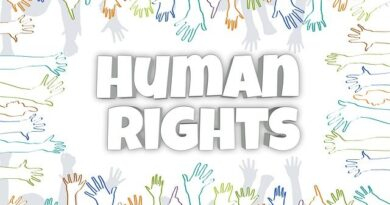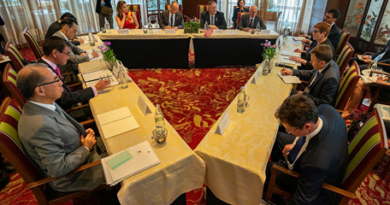Anti Trafficking Bill Draft
Context:
Ministry of Women and Child Development has invited comments/suggestions from all the stakeholders on the draft of Anti Trafficking Bill i.e. ‘Trafficking in Persons (Prevention, Care and Rehabilitation) Bill, 2021’.
Objective of Anti Trafficking Bill:
- The objective of the bill is to prevent and counter trafficking in persons, especially women and children, to provide for care, protection, and rehabilitation to the victims, while respecting their rights, and creating a supportive legal, economic and social environment for them and also to ensure prosecution of offenders, and for matters connected therewith or incidental thereto. The Bill, once finalized, will be sent to the Cabinet for approvaland then for the assent of both the houses of Parliament to become an Act.
The Trafficking in Persons (Prevention Protection and Rehabilitation) Bill, 2018
Highlights of the Bill
- The Bill creates a law for investigation of all types of trafficking, and rescue, protection and rehabilitation of trafficked victims.
- The Bill provides for the establishment of investigation and rehabilitation authorities at the district, state and national level. Anti-Trafficking Units will be established to rescue victims and investigate cases of trafficking. Rehabilitation Committees will provide care and rehabilitation to the rescued victims.
- The Bill classifies certain purposes of trafficking as ‘aggravated’ forms of trafficking. These include trafficking for forced labour, bearing children, begging, or for inducing early sexual maturity. Aggravated trafficking attracts a higher punishment.
- The Bill sets out penalties for several offences connected with trafficking. In most cases, the penalties set out are higher than the punishment provided under prevailing laws.
Key Features
The Bill states that its provisions will be read in conjunction with other laws and its provisions will apply only in the case of any inconsistency. Key features of the Bill include:
- Definition of Trafficking: The Bill defines trafficking to mean: (i) recruitment, (ii) transportation, (iii) harbouring, (iv) transfer, or (v) receipt of a person for exploitation, by using certain means. These means are the use of threat, force, abduction, fraud, deception, abuse of power or through inducement. Exploitation includes physical or sexual exploitation, slavery, or forced removal of organs.
- Aggravated Trafficking: The Bill also classifies certain purposes of trafficking as ‘aggravated’ forms of trafficking. These include trafficking for the purposes of: (i) forced labour, (ii) bearing children, (iii) inducing early sexual maturity by administering chemical substances or hormones, or (iv) begging. The punishment for aggravated trafficking is higher than for simple trafficking.
- Rescue and Investigation: The Bill sets up various authorities at the district, state and national levels for rescue of trafficked persons and investigation of offences.
- At the district level, the state government will appoint anti-trafficking police officers and constitute Anti-Trafficking Units for one or more districts to rescue persons and investigate offences. Rescued persons will be produced before a Magistrate or Child Welfare Committee (in case of child victims). The authorities are required to close the investigation of the offence within a period of 90 days from the date of registration of the FIR. The functions of the district authorities will be monitored by a District Police Nodal Officer, to be appointed by the state government.
- At the state level, the state government will appoint a nodal office to: (i) combat trafficking in the state, (ii) monitor functioning of district anti-trafficking officers, and (iii) coordinate and monitor inter-state and trans-border transfer of victims, witnesses, evidence, and offenders. The District Police Nodal Office will report to the state nodal officer.
- At the national level, the central government will constitute a National Anti-Trafficking Bureau, which may take over investigation of cases referred to it by two or more states.
- Protection and rehabilitation: The Bill requires the central or state government to set up Protection Homes, to provide shelter, food, counselling, and medical services to victims. Further, the central or state government will maintain Rehabilitation Homes in each district, to provide long-term rehabilitation to the victims. The Bill requires the central and state governments to set up anti-trafficking committees at the district, state and national levels to ensure the rehabilitation of victims.
- Once the district anti-trafficking authorities rescue a person, they are required to inform the district anti-trafficking committee about the rescue operations. The committee will then provide interim relief and rehabilitation services to the rescued persons. The district committee will also: (i) pass directions to Protection and Rehabilitation Homes to ensure protection, rehabilitation and restoration of victims, and (ii) facilitate inter-state repatriation of victims subjected to bonded labour.
- At the state level, the anti-trafficking committee is responsible for: (i) arranging training and sensitization of personnel, and (ii) providing assistance and inputs for prevention of offences, especially ones having inter-state ramifications or features of an organized crime.
- At the national level, the anti-trafficking committee is responsible for: (i) ensuring relief and rehabilitation to victims through concerned ministries and statutory bodies, (ii) seeking reports from appropriate government, and state and district anti-trafficking committees on quality of services and functioning of Homes, and (iii) monitoring the Rehabilitation Fund.
- Rehabilitation of victims will not be dependent on criminal proceedings being initiated against the accused, or the outcome of the proceedings. The central government will also create a Rehabilitation Fund, which will be used to set up Protection and Rehabilitation Homes.
- Preventive Measures: The district and state anti-trafficking committees will undertake measures to protect and prevent vulnerable persons from being trafficked. These measures include: (i) facilitating implementation of livelihood and educational programmes for vulnerable communities, (ii) facilitating implementation of various government programmes and schemes for prevention of trafficking, and (iii) developing law and order framework to ensure prevention of trafficking.
- Special Courts: The Bill provides for setting up designated courts in each district, which will seek to complete trial of trafficking cases within a year.
- Penalties: The Bill specifies various penalties. Key penalties are specified in Table 2. All offences are cognizable (i.e. police officer can arrest without a warrant) and non-bailable. Note that if a person is found guilty under the Bill and also under any other law, the punishment which is higher will apply.
Punishment for offences under the Bill
| Offence | Punishment |
| Direct Offences | |
| Trafficking | Trafficking of one person: Imprisonment of 7-10 years, and fine; Trafficking of more than one person: Imprisonment of 10 years to life, and fine; Trafficking of minor: Imprisonment of 10 years to life imprisonment, and fine; Trafficking of more than one minor: life imprisonment, and fine; Trafficking involving public servant or public official: life imprisonment, and fine. |
| Aggravated Forms of Trafficking | Imprisonment of 10 years to life imprisonment, and fine of at least Rs 1,00,000. |
| Repeat Trafficker of Aggravated Offences | Life Imprisonment, and fine of at least Rs 2,00,000. |
| Buying or selling persons | Imprisonment of 7-10 years, and fine of at least Rs 1,00,000. |
| Trafficking with the aid of media | Imprisonment of 7-10 years, and fine of at least Rs 1,00,000. |
| Connected Offences | |
| Manager of premises of trafficking | First time conviction: Imprisonment of up to 5 years with fine of up to Rs 1,00,000; Subsequent conviction: at least 7 years with fine of up to Rs 2,00,000. |
| Owner/Occupier of premises of trafficking | First time conviction: up to 3 years imprisonment with fine of up to Rs 1,00,000; Subsequent conviction: at least 5 years with fine of up to Rs 2,00,000. |
| Publication or distribution of obscene material which may lead to trafficking | Imprisonment of 5 – 10 years, and fine of Rs 50,000 – 1,00,000. |
| Omission of Duty by an authority | First time conviction: fine of minimum Rs 50,000; Subsequent conviction: up to one year imprisonment with fine of at least Rs 1,00,000. |
International Conventions, Protocols and Campaigns
- Protocol to Prevent, Suppress and Punish Trafficking in Persons, especially Women and Children in 2000 as a part of the UN Convention Against Transnational Organised Crime. This protocol was adopted by the United Nations General Assembly in 2000. The United Nations Office on Drugs and Crime (UNODC) is responsible for implementing the protocol. It offers practical help to states with drafting laws, creating comprehensive national anti-trafficking strategies, and assisting with resources to implement them.
- Protocol against the Smuggling of Migrants by Land, Sea and Air. It entered into force on 28 January 2004. This also supplements the UN Convention Against Transnational Organised Crime. The Protocol is aimed at the protection of rights of migrants and the reduction of the power and influence of organized criminal groups that abuse migrants.
- Universal Declaration of Human Rights (1948) is a non-binding declaration that establishes the right of every human to live with dignity and prohibits slavery.
Blue Heart Campaign: The Blue Heart Campaign is an international anti-trafficking program started by the United Nations Office on Drugs and Crime (UNODC). - Sustainable Development Goals: Various SDGs aim to end trafficking by targeting its roots and means viz. Goal 5 (Achieve gender equality and empower all women and girls), Goal 8 (Promote sustained, inclusive and sustainable economic growth, full and productive employment and decent work for all) and Goal 16 (Promote peaceful and inclusive societies for sustainable development, provide access to justice for all and build effective, accountable and inclusive institutions at all levels).
Legislations in India
- Article 23 (1) in the constitution of India prohibits trafficking in human beings and forced labour.
| Article 23(1) Traffic in human beings and begar and other similar forms of forced labour are prohibited and any contravention of this provision shall be an offence punishable in accordance with law Article 21 The Supreme Court held that the right to live is not merely a physical right but includes within its ambit the right to live with human dignity. |
- The Immoral Traffic (Prevention) Act, 1986 (ITPA) penalizes trafficking for commercial sexual exploitation.
- India also prohibits bonded and forced labour through the Bonded Labour System (Abolition) Act 1976, Child Labour (Prohibition and Abolition) Act 1986, and Juvenile Justice Act.
- Sections 366(A) and 372 of the Indian Penal Code, prohibits kidnapping and selling minors into prostitution respectively.
- Apart from this, the Factories Act, 1968 guarantees the protection of rights of workers.
Source: PIB



